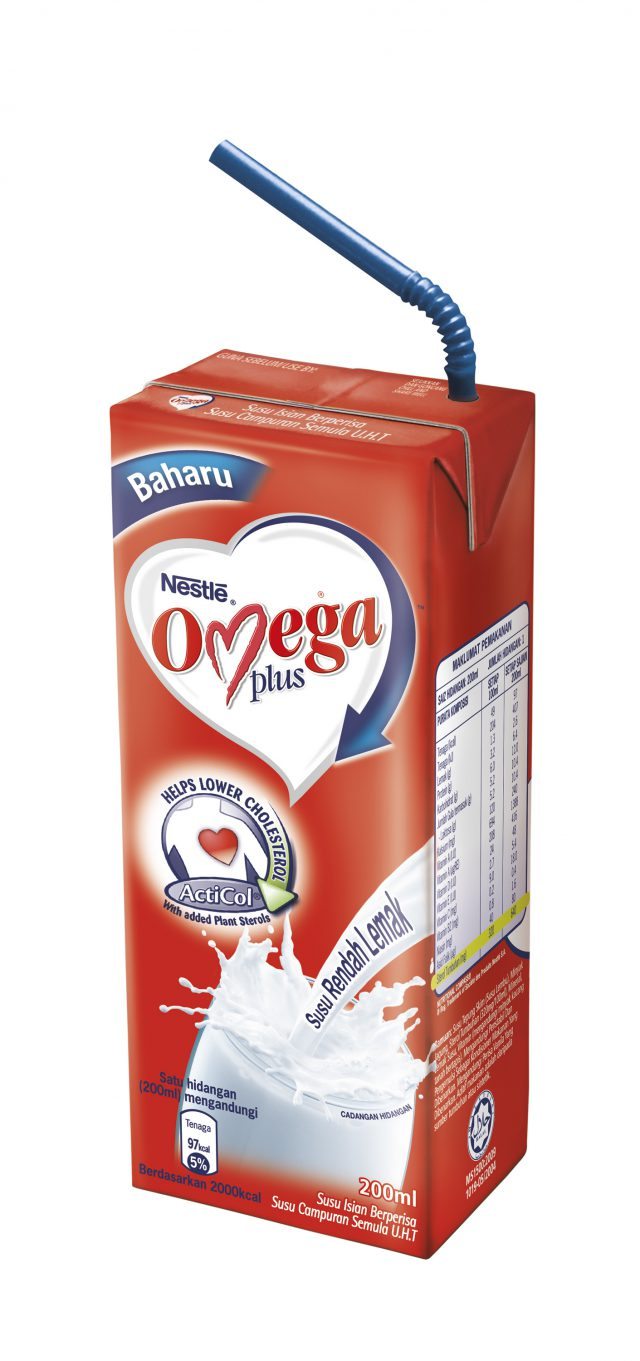Nestle releases its Omega Plus milk enriched with added plant sterols that can block the absorption of cholesterol into the bloodstream.
Plant sterols can also be found in grains, vegetables, fruits, legumes, nuts, and seeds.
However, one may have to eat very large amounts of these items to have an effect on your cholesterol.
For example, in order to get 1.2 g of plant sterols daily to effectively reduce cholesterol, one will need to eat 255 tomatoes or 126 carrots.
By drinking Nestle Omega Plus milk twice a day, the company says one can get the sufficient plant sterols needed to lower his/her cholesterol level.
“Plant sterols in plants work in the same way as cholesterol in humans – as an essential nutrient for life present in all cells,” said Dr. Alexandre Panchaud, R&D manager at Nestle Singapore.
“Plant sterols and cholesterol also possess a similar molecule structure and they travel along the digestive track and compete to be absorbed in our intestine.”
“Plant sterols work by ‘blocking’ cholesterol from being absorbed. Cholesterol that is not absorbed will be excreted out as waste from our body.”
The challenge is ensuring that one consumes the correct amount daily – “1.2g per day is the well accepted range for an effect of 7% cholesterol reduction,” added Dr. Alexandre.
His recommendation is to eat healthy “by consuming as much seeds, nuts, grain products, fruits and vegetables as possible and adding plant sterol enriched products to your diet like Nestle Omega Plus milk to reach an appropriate daily dose.”
According to Heart UK, the Cholesterol Charity, plant sterols are effective in lowering cholesterol levels by up to 10% when taken at optimal doses and as part of low saturated fat diet in just over three weeks.
In fact, they are considered to be the most effective single food that can lower cholesterol as part of a healthy diet and lifestyle.










